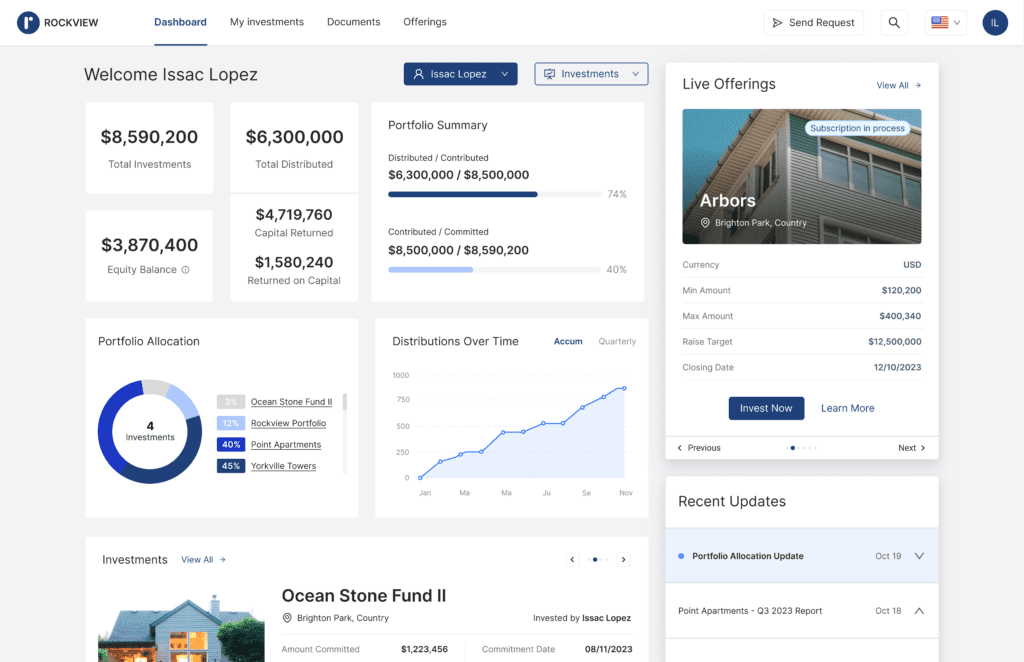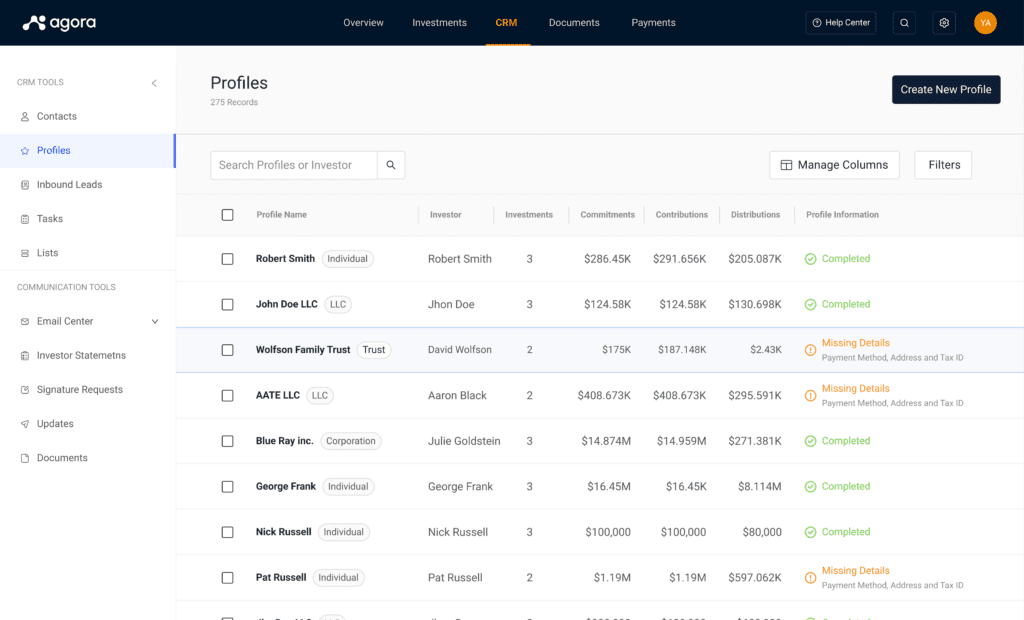Email has long been the default method for managing communication with investors. Firms use email to send updates and reports, sign documents, deliver messages, and practically run all aspects of their investor communication from their inbox.
However, despite its widespread use, email is a suboptimal means of communication management, especially when communicating with investors.
It’s pretty straightforward when you need to send a message or a document to a couple of investors. But when dealing with complex deals on a large scale, keeping track of who received which email, who signed which document, and who has yet to respond often becomes overwhelming.
This happens because email is a generic tool that wasn’t designed to manage dynamic mass communication effectively, nor can it cater to the unique requirements of communicating with real estate investors.
Just to name a few of the many issues with relying on email as an investor communication tool:
- Lack of security: Email communication is susceptible to interception, hacking, and phishing attempts.
- Time-consuming manual management: Email-based communication involves manual, time-consuming administrative tasks.
- Inconvenience for investors: Investors have to sort and manage documents and information on their end continuously.
- Disorganization: Emails can lead to disorganized information, making it difficult to find specific details or documents.
- Risk of missed communications: There is a higher risk of missed or overlooked emails, leading to delays and misunderstandings.
- Lack of analytics and insights: Email communication lacks built-in analytics and reporting features.
The bottom line is that if you want to manage investor communication effectively, email isn’t the best way to do it. So what is the best way?
What’s the best way to manage investor communication?
The most effective means of communication management between GPs and their LPs is through real estate investment management software, a solution that covers all aspects of investment management for GPs.
This solution provides your investors with their own Investor Portal, where they can view their investment portfolio, access all their documents and information, and communicate with their GP.

Investor Portal
The GP on their end can manage all communications with a CRM – a relationship management dashboard, where they can easily access all investor information and communicate with them effectively.
GPs can send updates to investors of a specific deal, quickly build lists to invite investors or leads to invest in new deals, assign team members to specific investors for better team collaboration, and more.

CRM Dashboard
So, are we done with email?
Not at all.
Email is still a common and convenient touchpoint for interactions, where people concentrate a significant part of their daily communications. And it’s fine as such. It’s the infrastructure that needs to be better.
That’s why a good investment management solution will offer a seamless email sync between the software and the email accounts of GPs and LPs. You and your LPs will get email notifications in your inbox for new information and actions that need to take place.
A deeper dive into the advantages of investment management software for investor communication
Let’s review in more detail all the advantages of investment management software over email for communicating with your investors:
Enhanced Security
Investment management software offers an unprecedented level of security compared to email, reducing the risk of unauthorized access and data breaches. With advanced encryption, multi-factor authentication, and strict access controls, the software creates a secure environment for sharing information.
Streamlined communication and collaboration
Unlike email, where messages and attachments can get lost in cluttered inboxes, an Investor Portal offers a unified space where investors can access relevant documents, updates, and messages in one location.
This streamlined approach saves time, eliminates confusion, and enhances the overall efficiency of investor communication. Equally importantly – it offers investors convenience and clarity.
Improved organization and document management
Investors can access, review, sign and download documents at their convenience straight from their portal without having to save and sort documents by themselves or asking their GPs to send them a long-forgotten statement from last year. It’s all there in their portal.
Transparency and investor engagement
Investor portals promote transparency by giving investors real-time access to live portfolio information. Through the portal, investors can review property details, financial reports, performance metrics, and other relevant data.
Time savings through automation
Tasks such as document distribution, report generation, and transaction updates can be automated within the software, eliminating the need for manual, repetitive tasks. This automation reduces administrative overhead, allowing real estate firms to allocate more time to strategic activities.
Customization and branding
Investor portals often offer customization options, allowing real estate firms to align the portal’s appearance and functionality with their branding, including logo, color scheme, and visual elements. By providing a consistent and branded experience, investor portals reinforce the firm’s identity and reputation, fostering a sense of professionalism and trust among investors.
Data analytics and reporting
Data Analytics and reporting tools enable firms to track investor activity (such as open rates), monitor the effectiveness of communication strategies, and identify trends and patterns. By analyzing the data, firms can make data-driven decisions, refine their investor relations strategies, and proactively address investor needs.
Conclusion
Real estate firms that prioritize investment management software over traditional email communication gain a multitude of advantages.
From enhanced security and streamlined communication to improved organization, transparency, time savings, customization options, and data analytics, investment management software offers a superior platform for investor interactions.
By embracing investment management software, real estate firms can optimize their investor relations, strengthen engagement, and position themselves for success in today’s competitive market.










